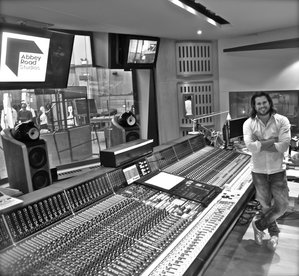
John, you started playing piano aged four and went to study piano and composition at the Royal College of Music in London. Did teaching piano when you left college contribute to your career as a music producer today?
Yes, I believe it did as you learn how to challenge your students and bring the best out of them musically. The same skill-set is required for producing artists. The challenge of producing artists is that you have to contain your own musical ego and put it to one side so that artists feel they are comfortable working with you and develop trust whilst getting great results.
You produce both classical music and various types of classical crossover music for TV and big sport events, even dipping into EDM (electronic dance music), which is quite impressive. From a production standpoint, what do those have in common?
Whilst it might not seem that there are similarities between classical and EDM genres, working on Laura Wright’s Sound of Strength’ album in 2014 with other EDM producers proved that you can tastefully put those two together.
You are also a classically trained composer. Do you remember the first piece of music you ever created?
I don’t particularly remember my first piece but I do remember spending lots of time listening to the piano works of Rachmaninoff and Chopin trying to imitate their style and technique and create my own compositions based on them.
When we look on of these different styles of music you’ve made over the last 13 years, are we seeing an evolution in your production, or are you just make whatever music suits your mood at the time?
As a producer I produce and arrange the majority of the time to the spec of the artist or label. In my profession you always evolve from one project to the next and you never stop learning. As far as mood goes, you can’t produce according to what your mood dictates. You have to pull all the tools out of the bag and get on with the job but I guess it’s the same with any profession.
Can you describe, briefly, how you work on a new musical project, what are the creative steps from an idea to a finished song?
Nowadays we are very lucky that we can produce great sounding demos with fantastic sample libraries and sequencers. This is where I start the creative process of any project. To create the right demo is the most important part of the whole recording process as it gives clarity and direction towards the end product. In a lot of cases the demo is the finished song and then you go on to replace sampled with real instruments or combine samples with real instruments.
Do you have advice for young people who want to become music producers?
Be inspired but don’t compare yourself to others, get obsessed and put in the ten thousand hours. Develop a great understanding of harmony and learn how to construct great and enduring melodies because mostly people forget production but they don’t forget a great melody.
If you had to do it all over again, would you still choose this career?
Yes, I’m very lucky to be doing what I’m doing. Many people who aren’t musicians always show interest in what being a musician is regardless of how successful they are. But it is hard to forge a great living out of the industry unless you are totally dedicated and obsessed with breaking down doors!
 RSS Feed
RSS Feed